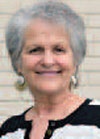By BARBARA MARTIN
Q: HOW DO I PREPARE FOR MARRIED LIFE?
I wish I had asked this question before I said, “I do.”As I look back on my early married life, I see someone who was quite selfish, entitled, spoiled and focused on how my spouse was supposed to love me rather than how I could best love him. I knew and had heard the importance of living sacrificially, but instead a power struggle quickly developed. It truly is by God’s sweet grace that 45 years later my husband and I are still married and our friendship is delightful.
Here are some suggestions for preparing for married life in a practical way:
◼ Make sure your own faith, joy, hope and obedience are in place. Determine how important individual and corporate worship is in your life; then as you look toward someone else, make sure they are on the same page. Grow in your devotion to Christ so that it is unshakable and your experience with Jesus is deeply satisfying. Marriage can be difficult at times and, in the struggles, it is good to remind yourself that your spouse cannot meet your deepest longings for connection, which can only be found in your relationship with Christ.
◼ Remember, before you are someone’s spouse, you were first part of the church, the bride of Christ. Your heavenly groom died for you (Romans 5:8), He clothed you in His righteousness and adopted you as His child. Remind yourself that your life is His and your marriage will be His.
◼ Understand that in marriage there will be times when you will be hurt. C.S. Lewis writes in his book “The Four Loves”: “Love anything and your heart will be wrung and possibly broken. If you want to make sure of keeping it intact, you must give it to no one, not even an animal … Lock it up safe in the casket or coffin of your selfishness.” We are all sinners who bring sin with us into marriage, so understand this going in. Cultivate being quick to forgive in relationships, and don’t let bitterness have an inch.
◼ When you are single, you have your own priorities; but when you marry, there is a oneness that occurs, so prepare yourself to be sacrificial. Become good at communication now because it will be all the more important when you are married. It isn’t just you anymore, but you will be part of a team (Ephesians 5:31), and the team needs to grow and live as one.
◼ Do not allow yourself deep emotional involvement with a person who is not a Christian. It is clear in the Bible that Christians should only marry other Christians. “Do not be unequally yoked with unbelievers. For what partnership has righteousness with lawlessness? Or what fellowship has light with darkness?” (2 Corinthians 6:14) If your partner doesn’t share your Christian faith, he or she cannot understand your heart and the true essence of who you are; the team will not operate as one if there are two different foundations.
◼ Feel attraction in a comprehensive way. Physical attraction is something that needs to be present and growing in a relationship, but a deeper and more intense attraction should be toward the person’s character. In his book “The Meaning of Marriage,” Tim Keller says: “We have been exploring marriage as a means to help one another become the glorious, unique persons God is making us. Marriage partners can say, ‘I see what you are becoming and what you will be (even though frankly you aren’t there yet). The flashes of your future attract me.’” Comprehensive attraction is something you can begin to develop with people if you disable the “money, looks and polish” screening mode.
Ephesians 5:31-33 talks about the mystery of marriage being like the mystery of Christ and the church. In preparing for marriage, this is an important and beautiful picture to hold on to:
For this reason a man will leave his father and mother and be united to his wife, and the two will become one flesh. This is a profound mystery — but I am talking about Christ and the church. However, each one of you also must love his wife as he loves himself, and the wife must respect her husband.

Barbara Martin, LPC, LMFT, clinical coordinator of the Counseling Center at Reformed Theological Seminary, has her own private practice at RTS.

